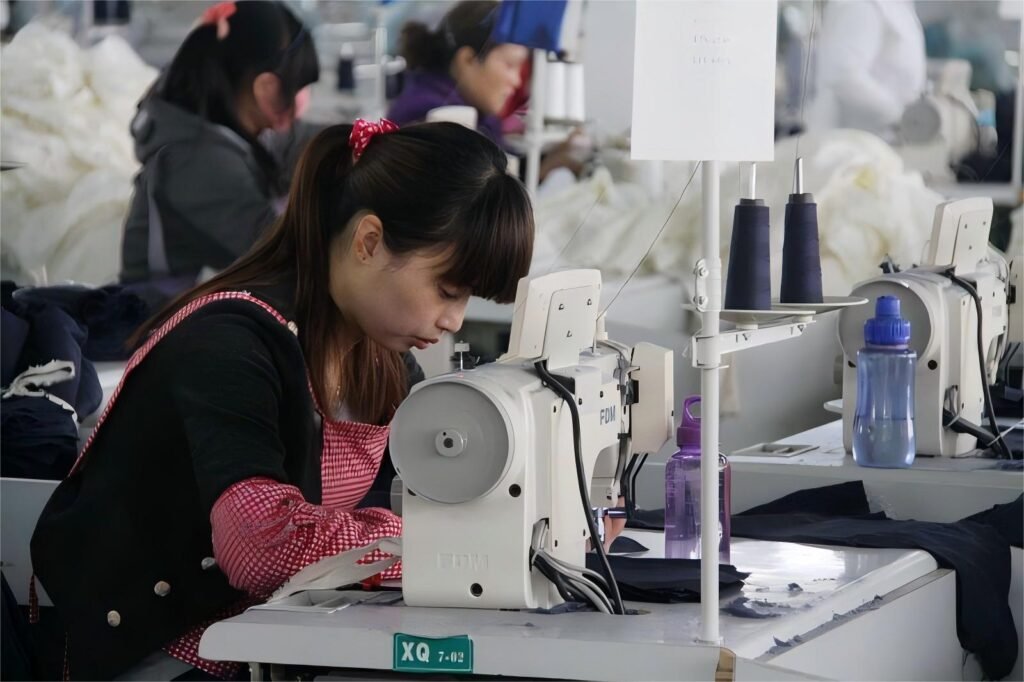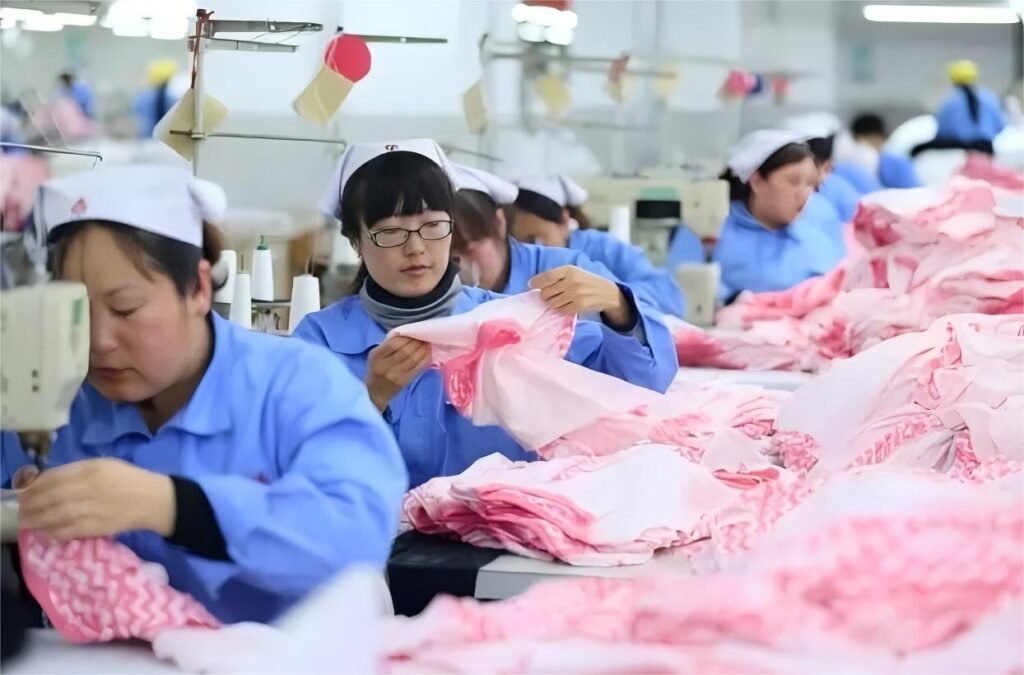No products in the cart.
Custom Yoga Pants
Ethical Clothing Manufacturers: Sustainable, High-Quality Apparel for Conscious Brands
Introduction to Ethical Clothing Manufacturers: Promoting Sustainability and Conscious Consumption
In recent years, there has been a growing awareness and concern about the environmental and social impact of the fashion industry. As consumers become more conscious of the consequences of their purchasing decisions, ethical clothing manufacturers have emerged as a solution to promote sustainability and conscious consumption. These manufacturers prioritize transparency, fair wages, safe working conditions, and the use of sustainable materials and production processes. By collaborating with ethical clothing manufacturers, brands can ensure that their products are not only high-quality but also align with their values and contribute to a more sustainable fashion future.

The Importance of Ethical Manufacturing in the Fashion Industry
The fashion industry is notorious for its negative impact on the environment and the exploitation of workers in developing countries. According to the United Nations Environment Programme, the fashion industry is responsible for 10% of global carbon emissions and is the second-largest consumer of water worldwide. Additionally, the majority of garment workers, particularly in countries like Bangladesh and India, are paid poverty wages and work in unsafe conditions. Ethical manufacturing addresses these issues by prioritizing sustainability and fair treatment of workers, making it a crucial aspect of the fashion industry’s transformation towards a more responsible and ethical model.
Key Principles of Ethical Clothing Manufacturers: Transparency, Fair Wages, and Safe Working Conditions
Transparency is a fundamental principle of ethical clothing manufacturers. They believe in providing consumers with information about their supply chains, production processes, and the materials used in their products. This transparency allows consumers to make informed choices and hold brands accountable for their actions. Fair wages are another key principle of ethical manufacturing. These manufacturers ensure that workers are paid a living wage, which enables them to support themselves and their families. Safe working conditions are also a priority, as ethical manufacturers strive to create a safe and healthy environment for their employees.
Sustainable Materials: Exploring Eco-friendly Fabrics and Production Processes
Ethical clothing manufacturers prioritize the use of sustainable materials in their production processes. They explore eco-friendly fabrics such as organic cotton, hemp, and bamboo, which require less water and pesticides compared to conventional cotton. These manufacturers also embrace innovative production processes, such as using natural dyes and reducing water and energy consumption. By choosing sustainable materials and production processes, ethical clothing manufacturers minimize their environmental impact and contribute to a more sustainable fashion industry.
Ethical Supply Chains: Tracing the Journey of Clothing from Farm to Factory
Ethical clothing manufacturers understand the importance of tracing the journey of clothing from farm to factory. They work closely with their suppliers to ensure that the materials used in their products are sourced responsibly. This includes verifying that the cotton is grown without harmful pesticides, the workers involved in the production of materials are treated fairly, and the transportation of materials is done in an environmentally friendly manner. By tracing the supply chain, ethical manufacturers can ensure that their products are not associated with environmental degradation or human rights abuses.
Supporting Local Communities: Ethical Manufacturers and Social Responsibility
Ethical clothing manufacturers recognize their social responsibility and actively support local communities. They often collaborate with artisans and small-scale producers, providing them with fair wages and opportunities for economic empowerment. By supporting local communities, ethical manufacturers contribute to poverty alleviation and promote sustainable development. This approach also helps preserve traditional craftsmanship and cultural heritage, adding value to the products and creating a unique selling point for conscious brands.
Ethical Fashion and Animal Welfare: Cruelty-Free Alternatives in Clothing Production
Animal welfare is another important aspect of ethical clothing manufacturing. Many ethical manufacturers offer cruelty-free alternatives to traditional materials such as fur, leather, and silk. These alternatives include plant-based fabrics like pineapple leather, mushroom leather, and recycled polyester made from plastic bottles. By choosing cruelty-free materials, ethical clothing manufacturers ensure that no animals are harmed in the production process, aligning with the values of conscious consumers who prioritize animal welfare.

The Rise of Fair Trade Fashion: Empowering Artisans and Promoting Economic Equality
Fair trade fashion has gained significant traction in recent years, empowering artisans and promoting economic equality. Fair trade certification ensures that workers receive fair wages, work in safe conditions, and have access to social benefits. Ethical clothing manufacturers often collaborate with fair trade organizations and cooperatives, providing them with a platform to showcase their skills and products. By supporting fair trade fashion, consumers can contribute to the economic empowerment of marginalized communities and promote a more equitable fashion industry.
Ethical Clothing Manufacturers and Environmental Impact: Reducing Waste and Carbon Footprint
Ethical clothing manufacturers are committed to reducing waste and minimizing their carbon footprint. They embrace circular economy principles, which prioritize the reuse, recycling, and upcycling of materials. By designing products with longevity in mind and using recycled or upcycled materials, ethical manufacturers reduce the amount of waste generated in the fashion industry. They also invest in renewable energy sources and implement energy-efficient practices to minimize their carbon emissions. By reducing waste and carbon footprint, ethical clothing manufacturers play a crucial role in mitigating the environmental impact of the fashion industry.
Ethical Fashion Brands: Collaborating with Manufacturers for Sustainable Collections
Ethical fashion brands often collaborate with ethical clothing manufacturers to create sustainable collections. These collaborations allow brands to leverage the expertise and sustainable practices of ethical manufacturers, ensuring that their products meet the highest ethical and environmental standards. By working together, brands and manufacturers can create innovative and sustainable designs that appeal to conscious consumers. These collaborations also provide an opportunity for brands to educate their customers about the importance of ethical manufacturing and promote sustainable consumption.
Ethical Certification and Standards: Identifying Trustworthy Clothing Manufacturers
To identify trustworthy clothing manufacturers, ethical certification and standards play a crucial role. Certifications such as Fair Trade, Global Organic Textile Standard (GOTS), and Bluesign ensure that manufacturers meet specific criteria related to social and environmental responsibility. These certifications provide consumers with confidence that the products they purchase are ethically produced. Additionally, industry initiatives like the Fashion Revolution’s Fashion Revolution Week and the Sustainable Apparel Coalition’s Higg Index promote transparency and encourage brands and manufacturers to improve their ethical practices.

Conclusion: Embracing Ethical Clothing Manufacturers for a Sustainable Fashion Future
Ethical clothing manufacturers are at the forefront of promoting sustainability and conscious consumption in the fashion industry. By prioritizing transparency, fair wages, safe working conditions, and the use of sustainable materials and production processes, these manufacturers are driving positive change. Collaborating with ethical manufacturers allows brands to align their values with their products and contribute to a more sustainable fashion future. As consumers, we have the power to support ethical clothing manufacturers and demand transparency and accountability from the fashion industry. By embracing ethical manufacturing, we can create a fashion industry that respects both people and the planet.
